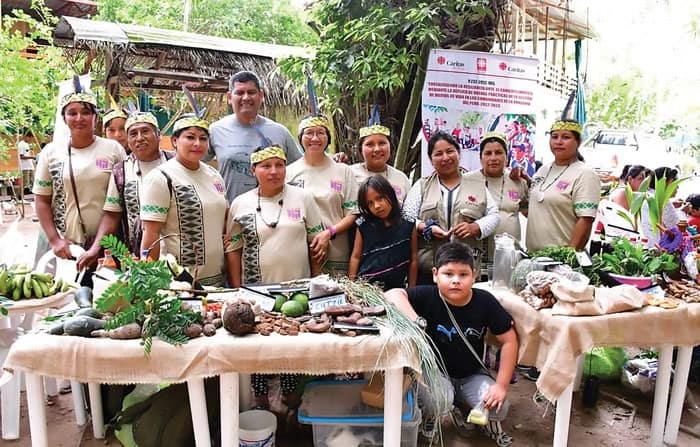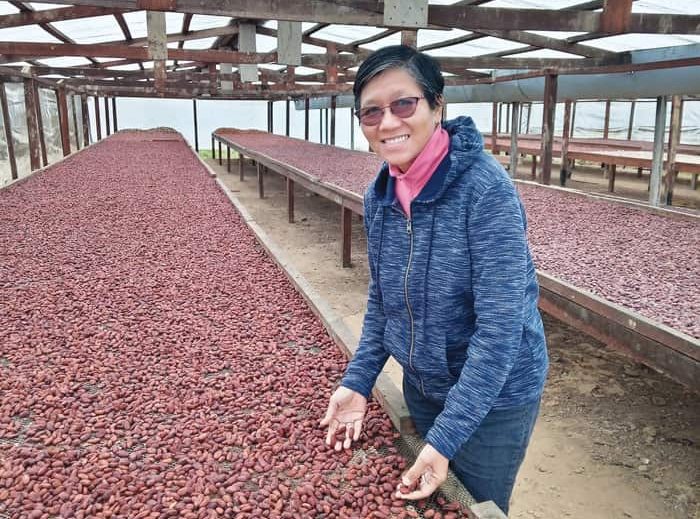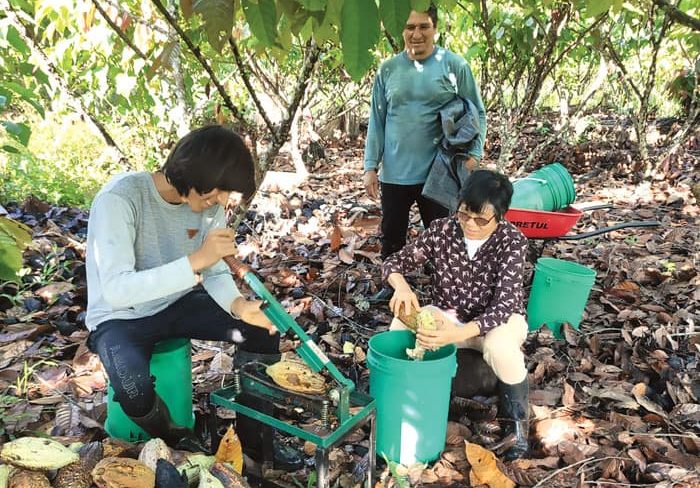Maryknoll Sister Esperanza Principio serves Indigenous small farmers in the Amazon Rainforest.
Volunteering with Caritas of Madre de Dios, based in Puerto Maldonado, Peru, I was sent out to isolated areas to focus on food security and adaptation to climate change and to work with farmers’ cooperative projects.
Biodiversity of flora and fauna is the main characteristic of Madre de Dios. The region is also rich with varied cultures lived by Indigenous peoples, both those contacted by non-native outsiders and non-contacted. I was welcomed by, and worked with, seven Indigenous communities on the riverbanks of Las Piedras River. The indigenous groups are Yine, Amahuaca, Matsigenka, Ashaninka and Shibipo. I ministered to families on small farms who grow cacao, from which chocolate is made, and copoazu, a related plant.

However, living in the Amazon also means witnessing an ecosystem that is fractured. Systematic burning, land conversion, land grabbing, deforestation, mining and lack of protection for tropical forests and their Indigenous guardians happen daily. I felt some helplessness as a muted witness amid all this threatened beauty.

What will it take for us to realize we cannot live without nature? How late will we wait until we take care of and repair creation?

My term of volunteering with Caritas in Madre de Dios having ended, I returned to my ministry in Lima. I continue to pray for the Amazon Rainforest and its people so that it may continue to give life to our planet and its inhabitants, life in abundance (John 10:10).
Featured image: Maryknoll Sister Esperanza Principio, who has been assigned to Peru since 2013, served as a volunteer for Caritas in the Amazon Rainforest. (Courtesy of Esperanza Principio/Peru)
![]()

